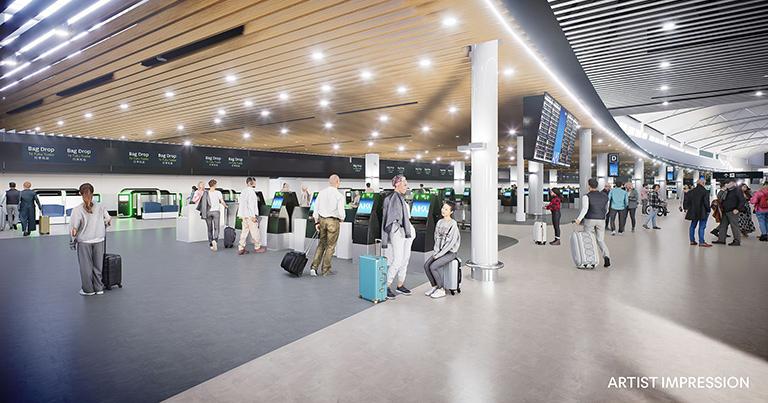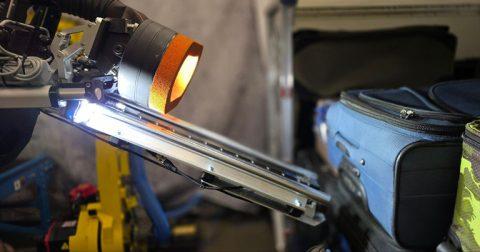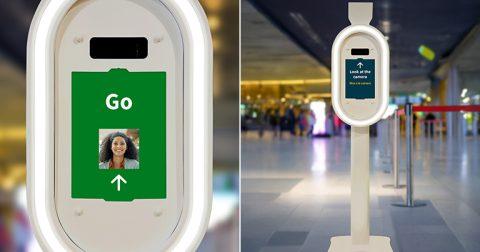
Auckland Airport has unveiled plans for a sweeping check-in upgrade that lays the digital foundations for a technology-led travel future and brings domestic and international travellers together under one roof for the first time since the 1970s.
Over the next four years, the existing check-in hall will be transformed, turning it into a 13,000sqm digital, user-focused departures area designed for the modern traveller. Practical and welcoming, an improved layout and flow will remove traditional queuing and create an intuitive, inviting start to the journey.
“This is a once-in-a-generation opportunity to completely reimagine the check-in experience and ensure New Zealand’s gateway airport is fit for the future,” said Carrie Hurihanganui, Chief Executive, Auckland Airport. “We’re delivering what travellers now expect from the world’s leading airports – a fast, seamless check-in experience, powered by smart technology and supported by great people. Alongside expanding the check-in space, we’re introducing a digital overhaul that will smooth the experience for travellers and sets us on the path to adopting future technologies such as biometrics. It’s a big change and as we prepare for the future, we’re modernising right to the core of our systems.”
Globally travellers are prioritising speed and convenience supported by technology. For airlines, the technology brings the ability to automate document checks, reduce manual processing and cut the risk of ineligible travellers reaching the gate.
“Internationally we are seeing work towards digital passports and digital travel credentials, integrating biometric data and cryptographic algorithms to ensure information is kept private and secure,” said Hurihanganui. “Building on ePassports, this technology allows for a more streamlined, faster authorisation at processing points such as check-in, border transitions and aircraft boarding.”
The project will centre on introducing common-use self-service kiosk and automated bag drops, replacing around 60 traditional check-in desks between now and the opening of the domestic jet terminal at the end of this decade.
“This is the direction airports globally are heading with Changi Airport, Dubai and Heathrow all showing how terminal upgrades drive the shift to self-service,” said Hurihanganui.
The technology has already been rolled out in one check-in zone, replacing 30 desks with 36 kiosks and 22 bag drops. Feedback from early-adopter airlines has been used to refine the design and processes for the wider rollout.
An important feature is common-use flexibility. The new kiosks and bag drops can be used by different airlines throughout the day, improving efficiency and reducing infrastructure duplication. Currently 27 airlines operate from the international terminal, flying to 42 overseas cities. Once the new domestic terminal opens, jet flights to New Zealand cities will also check-in through this centralised, modernised space.
“While we will be expanding and refreshing the terminal, moving away from traditional desk-based check-in gives us the opportunity to free up floor space, ease queuing pressure and improve flow,” said Hurihanganui.
You may also be interested in
12 technology and CX trends that can enhance airline and airport operations in 2025









